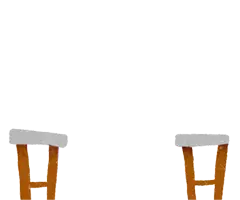Part 7Miscellaneous provisions
129Protection of persons acting under authority of Act
A person who, in pursuance or intended pursuance of any of the provisions of this Act, does any act, or fails or refuses to do any act, shall not be under any civil or criminal liability in respect thereof, whether on the ground of want of jurisdiction, or mistake of law or fact, or on any other ground, unless he has acted, or failed or refused to act, in bad faith or without reasonable care.
No proceedings, civil or criminal, shall be brought against any person in any court in respect of any act, failure, or refusal, to which subsection (1) applies except by leave of a Judge of the High Court, and such leave shall not be granted unless the Judge is satisfied that there is substantial ground for the contention that the person against whom it is sought to bring the proceedings has acted, or failed or refused to act, in bad faith or without reasonable care.
Notice of any application under subsection (2) shall be given to the person against whom it is sought to bring the proceedings, and that person shall be entitled to be heard against the application.
Leave to bring such proceedings shall not be granted unless application for such leave is made within 6 months after the act, failure, or refusal complained of, or, in the case of a continuance of injury or damage, within 6 months after the ceasing of the injury or damage.
In granting leave to bring any such proceedings as aforesaid, the Judge may limit the time within which such leave may be exercised.
-
Repealed
Notes
- Section 129(1): amended, on , by section 3(a) of the Health Amendment Act (No 3) 1994 (1994 No 137).
- Section 129(1): amended, on , by section 3(b) of the Health Amendment Act (No 3) 1994 (1994 No 137).
- Section 129(2): amended, on , by section 3(b) of the Health Amendment Act (No 3) 1994 (1994 No 137).
- Section 129(2): amended, on , by section 3(c) of the Health Amendment Act (No 3) 1994 (1994 No 137).
- Section 129(2): amended, on , pursuant to section 12 of the Judicature Amendment Act 1979 (1979 No 124).
- Section 129(4): amended, on , by section 3(d) of the Health Amendment Act (No 3) 1994 (1994 No 137).
- Section 129(6): repealed, on , by section 206(1) of the Water Services Act 2021 (2021 No 36).


